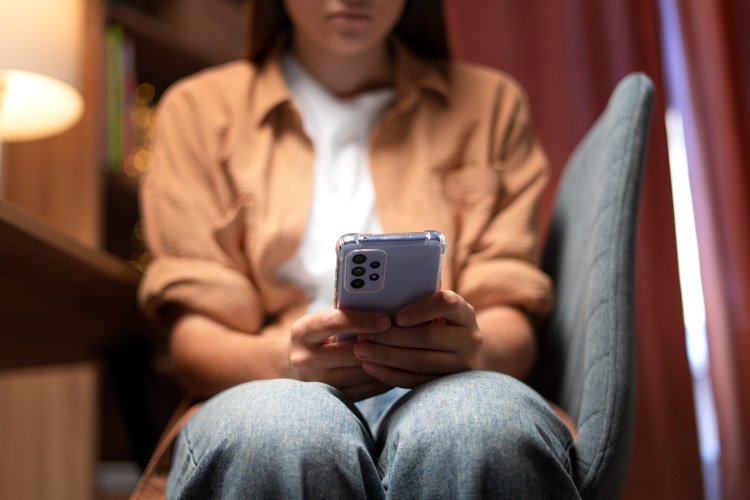Beating Valentine's Day Depression When You Have an Eating Disorder
To start, know that you’re not alone in your feelings regarding February 14th. Valentine’s Day depression is a real issue, especially for those with an eating disorder. With growing commercial pressure to prioritize the celebration of this Hallmark holiday, it’s all too common to feel sad, lonely, and disheartened, whether you’re single or not.
To help you beat the Valentine’s Day blues, White Pine Center for Healing, a leading eating disorder treatment center in Northwest Pennsylvania, explains why you may feel this way and what you can do to alleviate it.
The Pressure of Valentine’s Day
If you’re in a relationship, there is a lot of pressure to woo your significant other with expensive gifts, an extravagant dinner, and some grand romantic gesture. Much like other holidays, Valentine’s Day can be particularly difficult for those with eating disorders and body image issues due to the emphasis on big meals and lots of sweets.
If you’re single, the day can be lonely and come with its own set of pressures. In fact, surveys show that 43% of single people consider Valentine’s Day to be the most pressure-filled holiday. Commercial expectations make many people feel obligated to be in a relationship, date, and show others they have a Valentine.
All of this is coming off the heels of New Year’s Eve, where you “need” a midnight kiss, and New Year’s Day, where you’re encouraged to have a resolution. During this early part of the year, 40% of single people feel an elevated pressure to be “better” versions of themselves.
To be clear, there is nothing wrong with having a resolution. The problem is, about 1 in 5 revolve around weight loss. If you are going to have a resolution, remember that you can strive for more than a number on a scale. For instance, you can focus on:
Learning a new skill
Pursuing a new career goal
Reading more books
Saving more money
Spending time with family
Traveling to new places
Everyone has a different romantic history, which means there are nearly endless reasons why a person may feel negative emotions bubbling up as Valentine’s Day nears. What’s essential to realize is that these feelings are entirely natural, and you’re not alone. With a clear understanding of why you may feel depressed on or around Valentine’s Day, let’s look at what you can do to thrive.
Acknowledge Your Feelings
The first step is to sit with your feelings. If you recently experienced a breakup, it’s okay to grieve. If you haven’t found your partner, feeling lonely is completely valid. And, if your Valentine’s Day isn’t going the way you expected with your significant other, it’s all right to feel frustrated.
However you feel, recognize it. Then, remind yourself that all feelings are temporary.
2. Avoid Substance & Social Media Use
It can be tempting to mask your feelings with drugs, alcohol, or social media usage. But numbing your emotions can interrupt the process of allowing difficult feelings to dissipate naturally. Meaning, you’ll ultimately have to sit with them longer than if you were to be fully cognizant of your emotions.
Further, try your best not to distract yourself with social media on Valentine’s Day. Research has revealed a strong connection between social media use and depression, anxiety, poor sleep, low self-esteem, and social and appearance anxiety.
3. Remind Yourself What Valentine’s Day Really Is
Valentine’s Day certainly can be a day for people to celebrate their love for one another. But it’s helpful to remind yourself that Valentine’s Day is a completely commercialized holiday. Sure, it has some vague roots in Roman celebrations. But those roots revolve around brutality and violence. But if we’re being objective, the holiday has evolved into a day of big business. Case in point: Consumer spending on Valentine’s Day 2023 totaled $25.9 billion.
Today, there is no deep cultural or religious significance in how people celebrate Valentine’s Day. It is the epitome of a Hallmark holiday. That’s probably why 58% of Americans don’t consider Valentine’s Day a “real” special occasion.
4. Find a Different Way to Celebrate
Who Says Valentine’s Day Needs to Be Romantic? Yes, you can spend it with a significant other. But even if that’s the case, you don’t have to celebrate it in the commercially-popularized sense. You can cook a meal at home, watch your favorite movie together, or go for a hike.
And, if you don’t have a partner, consider spending the day with friends, family, or independently. Whether you take the day to spend some quality time with those close to you or to focus on self-love, know that there are no rules to how you spend your Valentine’s Day. For example, you could:
Indulge in a spa day
Volunteer at a local shelter or food bank
Get out in the great outdoors
Organize a “Palentines” or “Galentine's” day
Read a good book
Go on a day trip
5. Start a Gratitude Journal
Gratitude journals have become a popular way to boost personal well-being, and for good reason. Studies suggest that practicing gratitude through a written exercise like journaling can have significant positive effects on your mental, emotional, and even physical wellness.
On Valentine's Day, focus more on you, not on other people. As Theodore Roosevelt famously said, “Comparison is the thief of joy.”
Know When to Get Help
If your feelings persist long after Valentine's Day, it’s important to speak with a therapist. Furthermore, if you are having thoughts of self-harm, call 911 or go to the nearest emergency department. And, if you or someone you know is living with an eating disorder or body image issues, know that White Pine Center for Healing is here to help. We promote healing, recovery, and prevention and guide individuals through their recovery journey. Reach out today.







